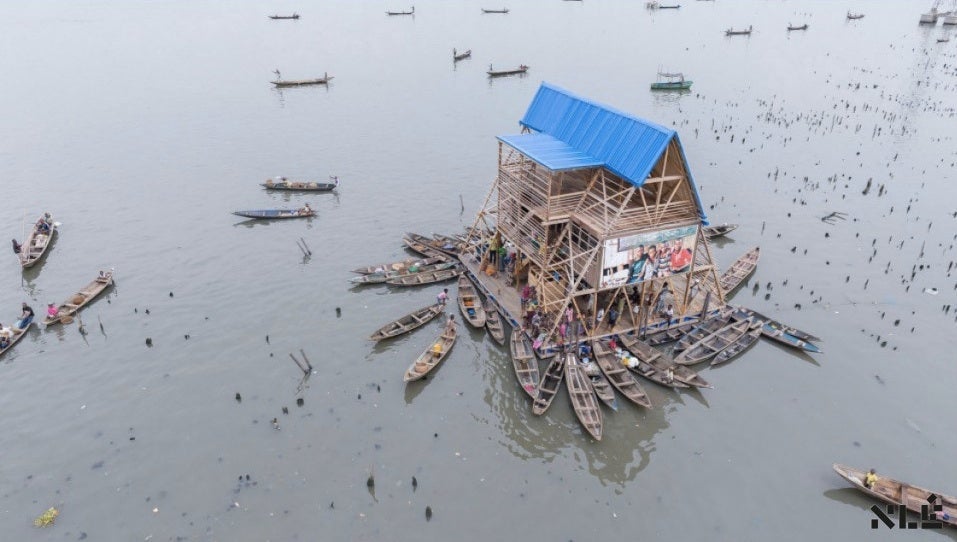A floating school in Lagos has helped bring solar power to one of the city’s oldest slums
Two years ago, Makoko, a water slum in the murky Lagos lagoon was shot into prominence following the construction of the Makoko Floating School by NLE Works, an architectural firm led by Kunle Adeyemi, one of Quartz’s 2015 Africa Innovators. Home to as many 100,000 people, the slum nicknamed the ‘Venice of Lagos’—a thriving community of residents who live out the entirety of their lives on water and in the backdrop of one of Africa’s largest urban centers. But a lack of regular power supply, proper waste disposal systems, basic school infrastructure and multiple health risks are issues the slum has been faced with.


Two years ago, Makoko, a water slum in the murky Lagos lagoon was shot into prominence following the construction of the Makoko Floating School by NLE Works, an architectural firm led by Kunle Adeyemi, one of Quartz’s 2015 Africa Innovators. Home to as many 100,000 people, the slum nicknamed the ‘Venice of Lagos’—a thriving community of residents who live out the entirety of their lives on water and in the backdrop of one of Africa’s largest urban centers. But a lack of regular power supply, proper waste disposal systems, basic school infrastructure and multiple health risks are issues the slum has been faced with.
Seeking to solve one of these pressing needs, Adeyemi built a low-cost school with support from the United Nations and Heinrich Boll Foundation. With the capacity to serve 100 school children, the floating school has since become an icon of urbanization in one of the world’s fastest growing megacities.
Now, Adeyemi’s firm announced that the Makoko Floating School has received funding from Lagos State’s tourism ministry to install solar power and also light up the Makoko waterfront.
Solar energy is increasingly being seen as a significant option to help resolve Nigeria’s chronic power shortage problem. Earlier this month saw the launch of the The Lighting Africa Project, a partnership between the World Bank, International Financial Corporation as well as local banks and energy firms in Nigeria. It will focus on developing a private sector that will provide electricity, using solar power, to up to a million households in Nigeria over the next five years.
No love lost
The solar energy news highlights a big change of tact on the part of the Lagos State government which has, in the past, been more antagonistic than supportive of the slum and its residents. Historically, Makoko and its residents have endured a difficult relationship with the government. In 2007, Makoko residents were not included in the national census and over the years, government has tried to evict residents from the slum. One of such forceful evictions in 2012 became violent after a local chief was killed.
In recent years though, the sentiment has changed as Makoko grabbed the attention of developers from around the world seeking to improve living standards with innovations such as the Makoko Floating School. Forceful evictions have been replaced with amicable talks to establish an understanding of how government can better serve the community.
Adeyemi’s wider goal is to revolutionize slums, turning them into better and healthier floating cities. “What if we begin to think of a new form of urbanism which has areas for high-rise and low-rise buildings, and as you move away from the coast, you create recreational facilities, swimming pools, parks, housing, agriculture and all kinds of things that would essentially produce a new form of architecture, and living on water,” Adeyemi said at the Quartz Africa Innovators’ Summit in Nairobi in September.
Benefiting from the impact of social innovation, Makoko is already on its way to sustainable urban development. As part of the Makoko Generation Plan (pdf), an initiative of Heinrich Böll Foundation Nigeria, organic waste is processed as bio-gas useful for powering homes while synthetic waste is recycled with collection centers across the slum.